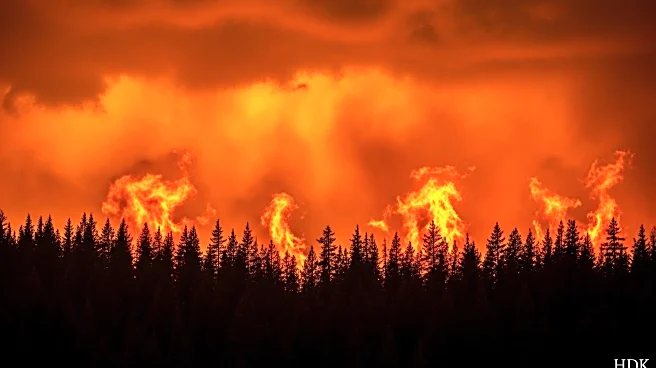What's Happening?
Europe has experienced a record number of wildfires this year, with over 1,900 blazes burning an area larger than Cyprus. The fires have been fueled by extreme heat and drought conditions, exacerbated by climate change. In Galicia, Spain, a significant fire burned over 300 square kilometers, highlighting the challenges faced by local authorities in managing such disasters. The fires have exposed issues such as fragmented land ownership and under-resourced fire services, complicating efforts to control the blazes. Despite some countries investing in firefighting resources, the scale and intensity of the fires have overwhelmed existing systems.
Why It's Important?
The record wildfires in Europe underscore the urgent need for coordinated efforts to address climate change and improve disaster response mechanisms. The fires have significant environmental and economic impacts, destroying vast areas of land and contributing to carbon emissions. The situation highlights the vulnerabilities of regions with fragmented land ownership and insufficient firefighting resources. As climate change continues to increase the frequency and intensity of such events, there is a pressing need for comprehensive strategies to mitigate risks and enhance resilience.
Beyond the Headlines
The wildfires in Europe also raise questions about land management practices and the role of private landowners in preventing fires. The lack of maintenance on privately owned lands has contributed to the spread of fires, suggesting a need for policy changes to enforce land management regulations. Additionally, the fires highlight the interconnectedness of climate change and natural disasters, emphasizing the importance of global cooperation in addressing these challenges.









